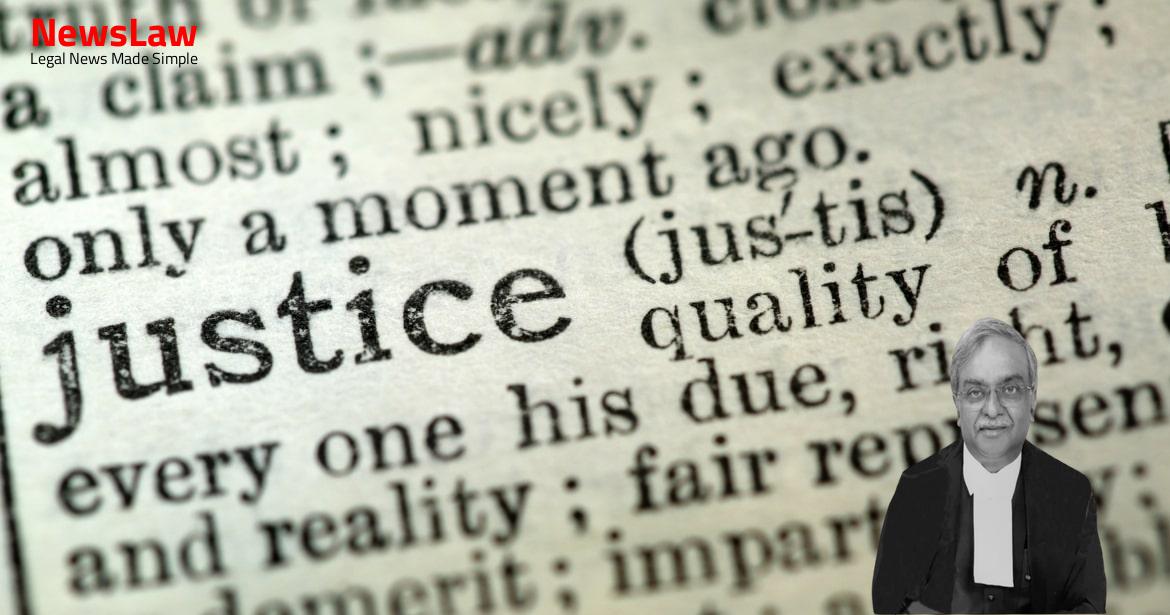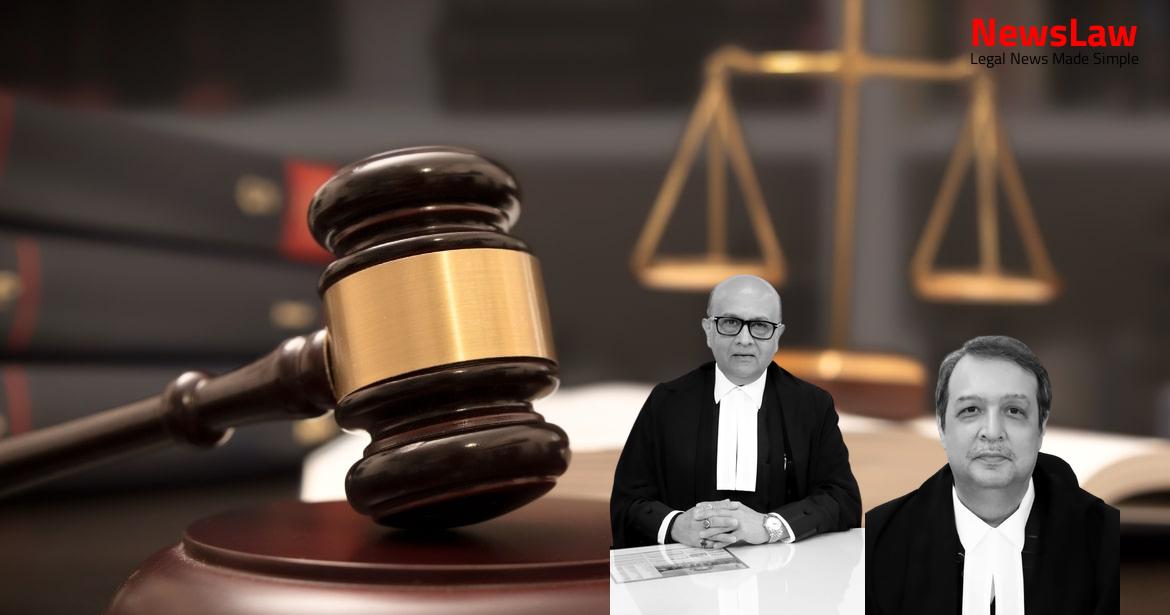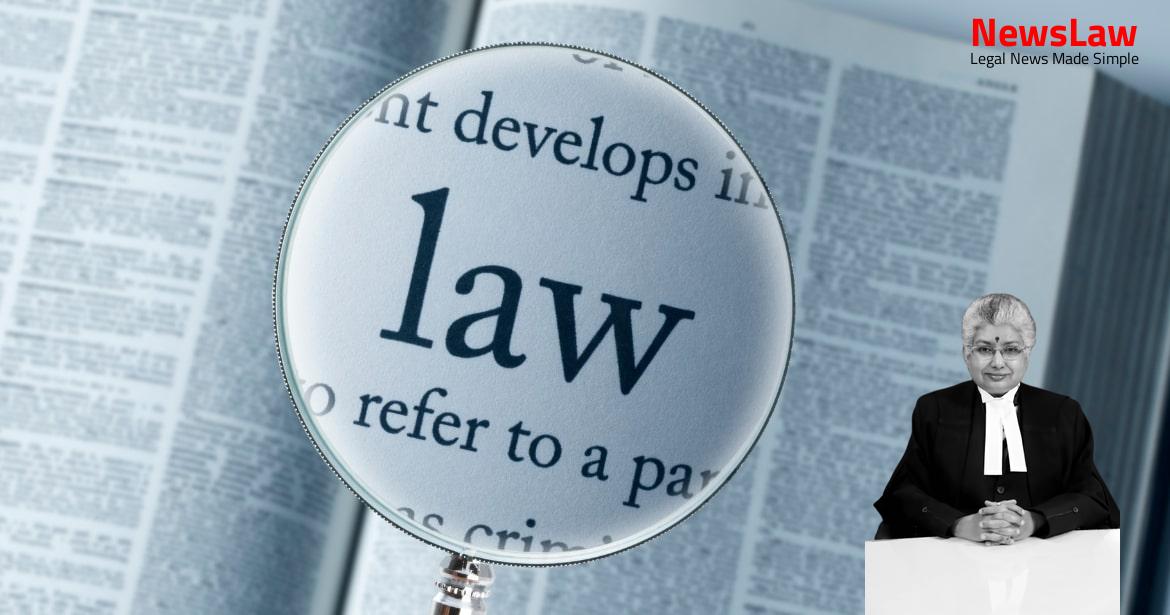In a recent landmark judgment, the Supreme Court of India delved into the intricacies of cheque dishonour cases, particularly focusing on the distinction between company liability and authorized signatory liability. The case involved a dispute over the interpretation of Section 143A of the Negotiable Instruments Act, 1881, concerning interim compensation for dishonoured cheques. Let’s explore the nuances of the court’s decision regarding Drawer Liability and its implications for future legal proceedings.
Facts
- Appellant filed application under Section 143-A, NI Act seeking interim compensation from Cane.
- Cane agreed to refund advance amount due to the Appellant.
- Judicial Magistrate directed respondents to pay interim compensation of 4% of total cheque amount.
- Process issued against Cane and respondents by Judicial Magistrate.
- Cane admitted into Corporate Insolvency Resolution Process.
- High Court allowed Criminal Application by setting aside order for interim payment.
- The Judicial Magistrate partially allowed the application stating that the complaint cannot proceed against Cane under Section 14 of IBC during the moratorium period.
- However, the complaint was allowed to proceed against the other individuals named as respondents.
- The High Court later allowed the application of the respondents, setting aside the order for interim compensation passed by the Judicial Magistrate.
- The Judicial Magistrate clarified that the moratorium under Section 14 of IBC applies only to corporate debtors and not to natural persons associated with the accused company.
Also Read: City Manager Selection Dispute: Upholding Rules 2014 Over Executive Order
Issue
- The High Court has framed a larger question of law regarding the liability of the signatory authorized by the company on a cheque.
- The High Court has questioned whether the signatory of the cheque, authorized by the company, can be considered the ‘drawer’ and be directed to pay interim compensation under section 143A of the Negotiable Instruments Act, 1881, excluding the company.
- In the judgment dated 08.03.2023, the High Court answered this question in the negative and upheld the decision in the order dated 29.03.2023 in the appellant’s case.
Also Read: Landmark Judgment by Supreme Court on Divorce and Maintenance Dispute
Arguments
- The appellant argued that not every person signing a cheque on behalf of a company becomes the drawer of the cheque, but is only duly authorized to sign on behalf of the company.
- The appellant rejected the submission regarding interim compensation by the director or person in charge of the company, stating that only directors can be directed to pay interim compensation in the case of a company under CIRP.
- The appellant emphasized that a restrictive interpretation of the provision would defeat the purpose of providing interim compensation to the payee of a dishonored cheque.
- The appellant referred to the court’s observation in Aneeta Hada case to support the argument that an authorized signatory becomes a drawer as they have been authorized to do so regarding the company’s account.
- The appellant argued that since the company is in moratorium and able to pay compensation, the authorized signatory does not become a drawer but extends the criminal liability from the company to its directors and officers for a dishonored cheque drawn on the company’s account.
Also Read: Supreme Court Ruling on Withdrawal of Prosecution: Case of Chhote Singh
Analysis
- The primary liability under Section 138 of the NI Act is on the drawer, who must ensure sufficient funds in the account when the cheque is presented.
- The authorised signatory becomes a drawer for the company under Section 141 for extending criminal liability.
- Interpreting statutes based on their plain language versus applying purposive construction was discussed to align with lawmakers’ intentions.
- Sections 138, 143A, and 148 of the NI Act pertain to penalties for dishonoured cheques due to insufficient funds.
- The High Court emphasized that ‘drawer’ within the NI Act refers specifically to the issuer of the cheque.
- The legal distinction between individuals acting as authorized signatories and the legal entities they represent is crucial.
- The High Court rejected the inclusion of authorized signatories within the definition of ‘drawer’ under Section 143A.
- Liability under Section 141 arises from the conduct, act, or omission of the person involved, not merely their position in the company.
- The purpose of Section 143A is to provide interim relief to payees of dishonoured cheques by imposing liability on the drawer.
- The High Court upheld that an authorized signatory, despite acting on behalf of a company, remains distinct as an individual under the law.
- The High Court interpreted Section 143A to mean that only the drawer-company is liable to pay interim compensation, not its employees or management.
- The appellants’ attempt to extend liability to authorized signatories under Section 143A was deemed unfounded by the Court.
- The High Court’s analysis emphasized the critical distinction between authorized signatories and the legal entities they represent.
- A strict interpretation of Section 143A indicates that only the company is considered the drawer of the cheque, not individuals like directors.
- The primary liability for an offence under Section 138 lies with the company, with management vicariously liable under specific conditions in Section 141.
- The High Court’s interpretation ensures clarity and consistency in assigning liability for cheque dishonour cases under the NI Act.
- Legislative intent should guide the interpretation of statutes, considering all parts of a statute together to discern the overall purpose.
- Words and phrases within a statute must be construed in context, taking into account legislative objectives and the broader framework of the law.
- Section 141 of the NI Act extends liability to the company’s officers for the dishonour of a cheque, emphasizing strict interpretation of penal statutes for determining vicarious liability.
- The judgment in K.K. Ahuja supported the approach of strict interpretation of penal provisions to determine liability, clarifying that primary liability for an offence under Section 138 lies with the company itself.
- The High Court’s interpretation of Section 7 of the NI Act considered clear and unambiguous statutory language speaking for itself.
- Principles of company law were invoked by the High Court to support its interpretation, emphasizing the specific targeting of the drawer of the cheque in Section 143A.
- The interpretation excludes authorized signatories from liability, aligning with legal precedents and principles of statutory interpretation.
- Arguments seeking to expand the definition of ‘drawer’ to include authorized signatories were dismissed for consistency in statutory interpretation.
- The High Court’s decision to strictly interpret ‘drawer’ as the issuer of the cheque, excluding authorized signatories, aligns with legislative intent, legal precedents, and principles of statutory interpretation.
Case Title: SHRI GURUDATTA SUGARS MARKETING PVT. LTD. Vs. PRITHVIRAJ SAYAJIRAO DESHMUKH (2024 INSC 551)
Case Number: Crl.A. No.-003070-003071 – 2024



